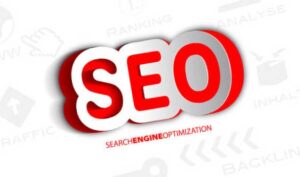WHY YOUR BUSINESS NEEDS A DIGITAL MARKETING STRATEGY
“Google only loves you when everyone else loves you first”
Wendy Piersall
In order for a business to be successful, it needs a solid marketing strategy. The use of digital marketing is not only a decision which will protect your investment but also, an effective marketing strategy will work to grow your business.
Some companies are still reluctant to accept this idea. They think it’s risky to invest in digital advertising and prefer the traditional routes of print advertising, for example. But what they don’t know is that they could be losing a large percentage of prospects with their strategy because they aren’t present where the customers are online.
It may sound extreme, but the reality is that traditional marketing has been turned upside down by online marketing. If you have a website, ecommerce platform, or you’re thinking about creating one, you should consider investing in digital marketing.
Why? Because if you don’t exist online, you simply don’t exist. As simple as that…
Here are the main reasons why you should invest in digital marketing.
A digital marketing strategy is essential for your business to move forward, especially in 2018. Today, your blood, sweat, and tears are not enough to keep your business afloat. You need to get familiar with the concepts of digital marketing if you want to survive, and this holds true for all businesses across every industry.
HOW DO YOU DEFINE DIGITAL MARKETING?
Digital marketing encompasses all marketing efforts that use an electronic device or the internet. The key objective is to promote brands through various forms of digital media. More specifically, the purpose of digital marketing is to connect a business or organization with its target audience via digital channels.
Digital has also enabled consumers to self-educate, and be much more scrupulous when making their definitive purchase decision.
This creates an obligation for organisations to acknowledge and adapt to this digital growth if they want to achieve lasting customer success and be as profitable as possible. 76% of marketers think that marketing has changed more in the past two years than the past fifty, which means that continual upskilling is essential.
A strong digital strategy is no longer a luxury for organisations – it’s a fundamental element of any competitive business model.
As consumers become more empowered by digital, they rely less on the expertise of sales and more on their own ability to research. In response to this shift in power, organizations need to revitalize their sales and marketing functions and utilise the same channels and platforms their customers do in order to reach them effectively.
Currently, there are plenty of digital techniques that can enhance reach, encourage users to convert, and increase the visibility of your business.
Understanding digital marketing tactics can help you entrepreneurs do several things such as:
- Connect with customers online
- Reach mobile consumers
- Increase ROI
- Track consumer interactions
- Get higher conversions
Here are other stats available to showcase the potential of Digital Marketing:
- According to the Statista, there are around 2.46 billion social media users worldwide, which is one of most preferred promotional techniques.
- Facebook takes the social lead, with more than 2.2 billion active users around the globe.
- According to the survey held by Advanced Web Ranking, On-Page SEO is the most effective SEO tactic in 2017.
- According to the Google Economic Impact Report, Google AdWords encourages sales and provides an average of $2 revenue of every $1 spend on Ads.
- More than 49% organizations did not know about Digital Marketing or do not have a performing Digital Marketing Strategy, due to which they miss several business opportunities and are falling behind their competitors.
It’s clear now that you absolutely need to have a digital presence.
An integrated digital strategy will ensure that all your digital marketing efforts are streamlined. Since the Internet has seeped into every possible aspect of our lives, it is imperative that you stay ahead and keep up with your competitors. Businesses are sometimes reluctant to invest in the digital medium, but those investing in digital marketing strategies have 2.8 times better revenue growth expectancy, according to Google.
Your business’s success depends on the right type of strategy, and the right type of strategy can in turn lead to higher sales, new customers, and long-term growth.
While there are various digital marketing certifications and courses which can help you get in-depth with the various tools and technicalities, it’s still essential that you’re aware of some of the best techniques and practices used by a successful organisation.

The 2 main pillars of digital marketing are online marketing and offline marketing:
ONLINE DIGITAL MARKETING
Online mediums allow business to promote themselves and is the most preferred.
Why?
Simply, because there are more than 4 billion internet users worldwide who actively surf social media platforms, search engines, Google partner sites, and eCommerce Portals. By being present online, a business can enhance its reach towards those users.
The 7 main categories of online marketing are:
- Search engine optimization (SEO)
- Search engine marketing (SEM)
- Content marketing
- Social Media Marketing (SMM)
- Pay-per-click advertising (PPC)
- Affiliate marketing
- Email marketing
OFFLINE DIGITAL MARKETING
Offline electronic mediums (a digital medium outside of the Internet), still have their impact on human behaviour and can encourage users to connect with the brand, that’s why many choose to advertise their business using digital elements such as; electronic billboards, moving hoardings, offline stores with digital displays, etc. Offline digital marketing can include:
- Radio Marketing
- Television Marketing
- Phone Marketing
- Enhanced Display Marketing
You need to figure out which platforms your customers are using to consume information. No matter how good your communication is, it will go to waste if your audience does not understand it, does not relate to it or worse, does not even see it. A clearly defined digital strategy will consider the important task of understanding your audience, how you can make use of each channel and touchpoint, and what message needs to be communicated to your potential consumers.
If you’re trying to capture a younger audience through television commercials, it’s unlikely that you’ll succeed. Millennials are spending more time on their mobile devices than the other generations combined.
What does this mean for you as a business owner?
You need to adapt.
SO, HOW CAN DIGITAL MARKETING BE BROKEN DOWN INTO DIFFERENT SPECIALTIES?
a) SEO
One of the key marketing strategies that can help any business with a web presence to build their brand is Search Engine Optimization (SEO): the process of tailoring your website to the algorithms that search engines use to rank websites. Basically, if you´d like your business ranking on the first page of Google, you need an SEO strategy.

All major search engines such as Google, Bing and Yahoo have primary search results, where web pages and other content such as videos or local listings are shown and ranked based on what the search engine considers most relevant to website users. There are, on average, ten positions on a search engine results page (SERP), essentially the pages displayed by the search engine in response to a query. The pages that fill those positions are ordered by rank.
The higher your page is on the search results page, the better your click-through rate and ability to attract searchers. Results in positions 1, 2, and 3 receive much more traffic than results down the page.
Creating an SEO content strategy
So, what should you consider when creating an SEO strategy
- Keywords. Keyword research is the first step to a successful SEO strategy but first you must understand what people are searching for in a search engine. What are the keywords they use to drive targeted traffic to their products? If you notice that some keywords are too competitive in your niche, for example you are a real estate business on the Costa del Sol, but Marbella is searched for more than 100,000 times per month, go with long-tail keywords (between two and five words) which will be easier for you to rank for. The longer the keyword, the less competition you will have for that phrase in the engines and you are more likely to rank for it.
- Meta tags. Meta tags still play a vital role in SEO. Google looks at your page title as a signal of relevance for that keyword. The same holds true for the description of that page. Meta tags are added to the backend of a website, i.e. the part that customers can´t see.
- Content. Creating quality content is the best way to not only rank for keywords, but also create a positive user experience on your website. Plus, good content will be shareable and of real value to customers.
- Backlinks. If content is king, then backlinks are queen. It’s not about which site has the most links, but who has the most quality links pointing back to their website. So, spam websites linking to your website will not count! The best way to encourage backlinks is to have a media strategy to encourage the online press to backlink to your website. Creating newsworthy content is vital.
- Social media. The algorithms have truly changed since social media first emerged. Many content websites are community-oriented. Therefore, e-commerce stores must establish a strong social media presence on social media platforms such as Facebook, Pinterest, Twitter, etc. These sites send search engines signals of influence and authority.
- Product images. When many consumers search for products in the search engines, not only are they looking at the “Web” results, but they’re also looking at the “Images” results. If you have quality images of that product on your site, and the files’ names contain relevant keywords, these images will rank well in search engines. This avenue will drive a lot of traffic to your site, as potential customers will click on that image to find your store.
In addition to optimizing these six areas of your site, analyse your competitors and see what they are doing in terms of on-page optimization, off-page optimization and social media.
If your business has an online presence, you cannot afford to miss out an SEO strategy. We´re specialized in SEO, contact us today to find out how we can help your business get a boost.
b) SEM
Generally, “search engine marketing” refers to paid search marketing and it is a powerful tool for businesses. It allows you to pay for advertisements that are pre-screened to interested parties based on what they are searching for. Best of all, you only pay if the customer clicks through the ad and takes the first step down your sales funnel.
Keywords are the foundation of search engine marketing. Your choice of keywords and phrases to target has a huge impact on your overall conversions. The trick is to identify specific things your business does that people are likely to be searching for, but to know when a key-phrase is getting so long and specific that it’s unlikely someone will actually type it in.
SEM usually works out slightly more expensive than SEO practices as you will need to pay for certain paid listings and advertisements. But it is certainly worth it! Thankfully, there are now many tools and platforms, such as Google AdWords and Bing Ads which can help you keep your SEM expenses relatively low.
c) CONTENT MARKETING
Content marketing is a strategic marketing approach focused on creating and distributing valuable, relevant, and consistent content to attract and retain a clearly defined audience.
Through content marketing you are providing truly relevant and useful content to your prospects and customers to help them solve their issues and to engage them in wider topics related to your business.
Businesses that use content marketing report:
- Increased sales
- Cost savings
- Loyal customers who typically buy again or continue to use a service
Regardless of what type of marketing tactics you use, content marketing should be a core part of your digital marketing strategy.
d) SMM (social media marketing, for example, Facebook)
The question marketers must ask themselves is: “What makes my brand so interesting that people will want to talk about it and share it with their friends?”
You can’t succeed in social media if you don’t have something interesting to say. Social media is the vehicle for communicating and distributing interesting stories (content) across the Internet.
You should work to grow an audience and feed them interesting content, relevant to their interests. Your competition isn’t the guy or girl who sells the same stuff that you do. Your competition is every person, every brand, every small business, every big technology company, every politician and every celebrity who has something interesting to say.
That’s why it’s important to have a plan.
Content marketing can be pulled through to social media but it can also survive without it. Social media on the other hand, would not be popular without interesting, informative or humorous content. Before entering the social media space, you need a plan to figure out how to deliver interesting content on a consistent basis so that you may attract and retain the attention of your target audience. That is your content strategy.
e) PPC
PPC stands for pay-per-click, a model of Internet marketing in which advertisers pay a fee each time one of their ads is clicked.
PPC is all about relevance.

Search engine advertising is one of the most popular forms of PPC. It allows advertisers to bid for ad placement in a search engine’s sponsored links when someone searches on a keyword that is related to their business offering. In a PPC campaign when someone clicks on your ad, you pay the current cost per click (CPC) from your budget. Once your budget has been depleted, Google ceases to run your ads until you replenish your fund. When PPC is working correctly, the fee is trivial, because the visit is worth more than what you pay for it.
A lot goes into building a winning PPC campaign; from researching and selecting the right keywords, to organizing those keywords into well-organized campaigns and ad groups, to setting up PPC landing pages that are optimized for conversions.
Search engines reward advertisers who can create relevant, intelligently targeted pay-per-click campaigns by charging them less for ad clicks. If your ads and landing pages are useful and satisfying to users, Google charges you less per click.
f) AFFILIATE MARKETING
Affiliate marketing is one of the most popular ways people make money online. It’s the practice of recommending a company’s products or services to potential customers, generating a sale and earning a commission in return.
Affiliates can earn commissions on a one-time purchase or recurring income through sales of subscriptions or membership programs. After being accepted into an affiliate program, marketers receive a unique URL that includes their affiliate ID. They share that unique URL with their subscribers, site visitors, and social networks via text links or ads. When someone clicks on that link, affiliate software records that click and any resulting product sales in the affiliate’s account. When commissions reach a pre-determined threshold, the affiliate is paid.
g) EMAIL MARKETING
Email marketing is one of the most cost-effective ways to promote your business and also helps you to connect with your audience to promote your brand and make future sales.
Email marketing is used by thousands of businesses of all sizes across the globe.
When you want to communicate something about your brand or sell your products/services, email marketing is one of the most cost-effective ways to do so.
Here are ten reasons why email marketing is seen by many as the most effective marketing channel:
- low costs
- reach an already engaged audience
- deliver targeted messages
- drive revenue
- easy to get started
- easy to measure
- easy to share
- reach a global audience
- instant impact
- unrivalled return on investment
So, that´s a quick run through digital marketing for business. Do we have your attention? Think your business could benefit from a digital marketing strategy? Of course it would! Speak to Redline NOW to find out how we could help






